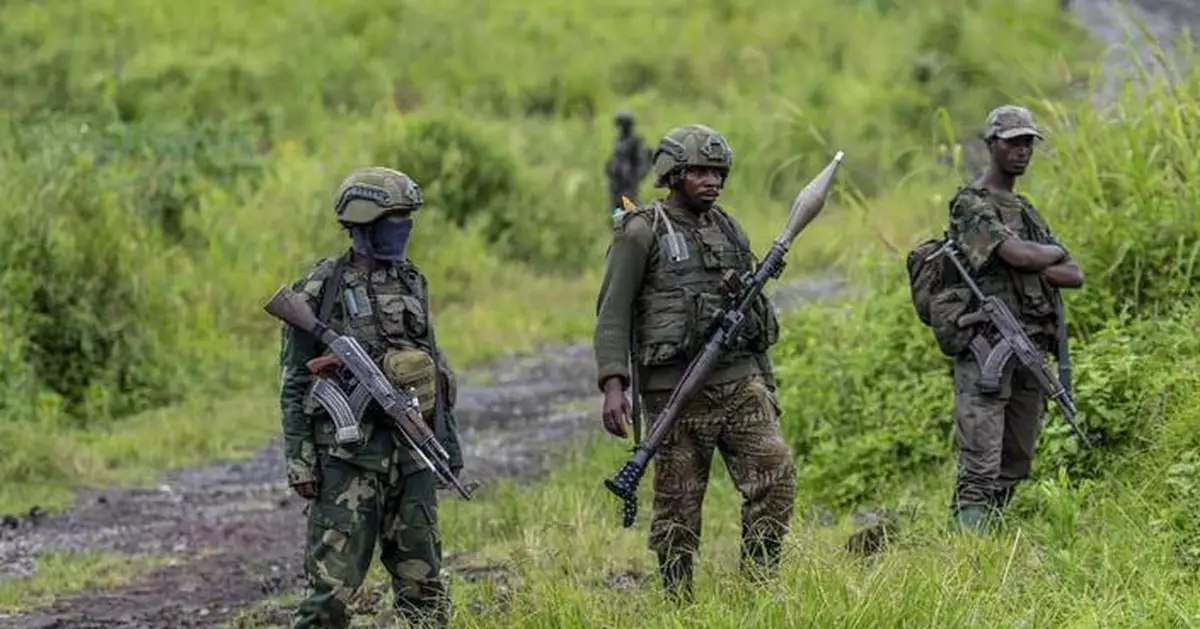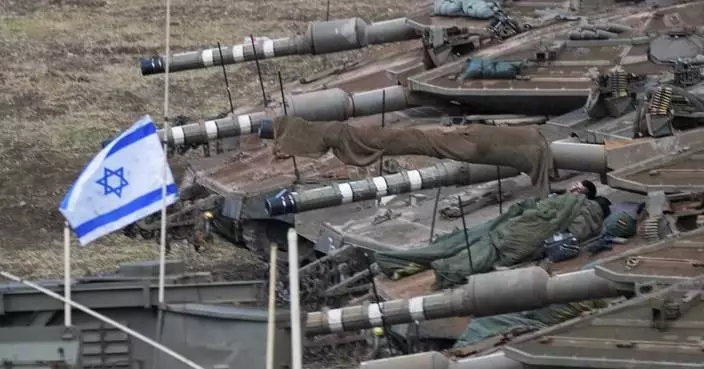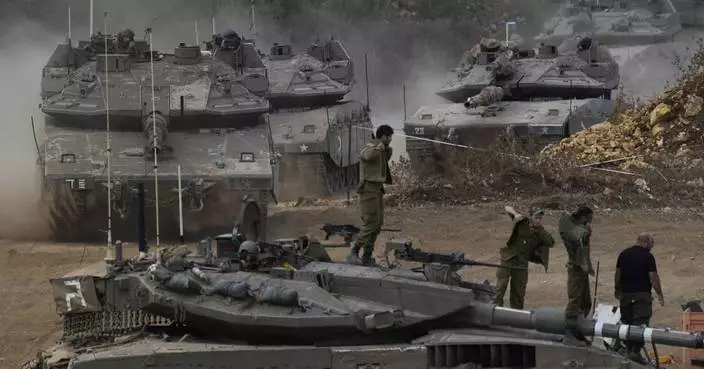DAKAR, Senegal (AP) — A rebel group in Congo generates around $300,000 a month in revenue through its control of a mining area in the east of the country, a U.N. official said.
In April, the M23 — a rebel group with alleged links to Rwanda — seized the Rubaya mining area in eastern Congo, which holds deposits of a key mineral used in the production of smartphones and computers. Over 15% of the world's supply of tantalum, a rare metal extracted from coltan, comes from Rubaya, Bintou Keita, head of the U.N. mission in Congo, told the Security Council on Monday.
“Unless international sanctions are imposed on those benefiting from this criminal trade, peace will remain elusive and civilians will continue to suffer,” Keita said.
Tantalum is among the minerals that were identified earlier this year in a letter from Congo’s government questioning Apple about the tech company’s knowledge of “blood minerals” being smuggled in its supply chain.
The decadeslong conflict in eastern Congo has produced one of the world’s worst humanitarian crises, with more than 120 armed groups fighting for power, land and valuable mineral resources while others try to defend their communities. Some armed groups have been accused of mass killings, rapes and other human rights violations. The violence has displaced some 6 million people in the country's east.
M23, or the March 23 Movement, is a rebel military group mainly made up of ethnic Tutsis that broke away from the Congolese army just over a decade ago. They staged a large offensive in 2012 and took over the provincial capital of Goma near the border with Rwanda, the same city they are threatening again.
Congo alleges that Rwanda has been involved in war crimes in the east and U.S. and U.N. experts accuse it of giving military backing to M23. Rwanda denies the claim, but in February admitted that it has troops and missile systems in eastern Congo to safeguard its security, pointing to a buildup of Congolese forces near the border.
In July, U.N. experts estimated that between 3,000 and 4,000 Rwandan government forces are deployed in eastern Congo alongside M23, which has been making major advances.
Last week, a regional court in East Africa opened proceedings in a case filed by Congo against Rwanda, accusing it of violating Congo’s sovereignty and territorial integrity by sending troops to help rebels in the country’s east.
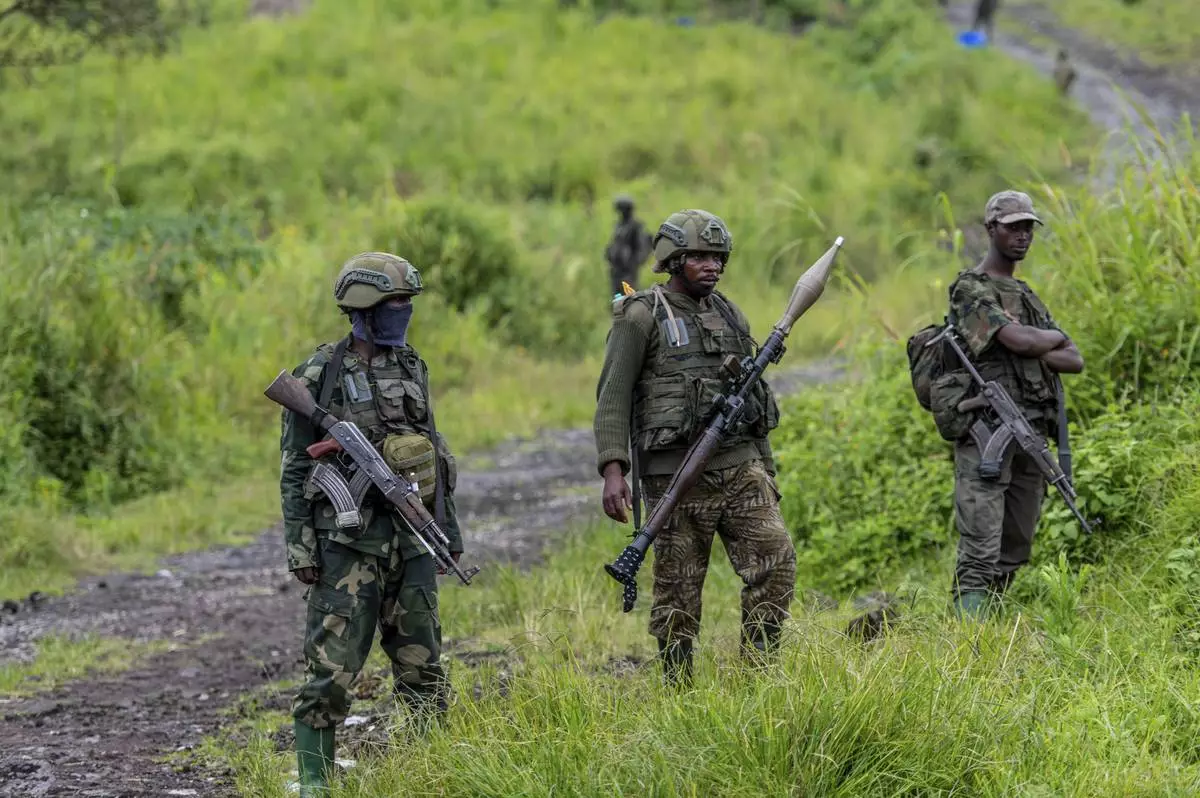
FILE - M23, rebels, who control Rubaya, a mining town in eastern Congo since May 2024 known for producing a key mineral used in smartphones, stand with their weapons in Kibumba, in the eastern of Democratic Republic of Congo, Dec. 23, 2022. (AP Photo/Moses Sawasawa, File)
WASHINGTON (AP) — Iran is preparing to “imminently” launch a ballistic missile attack on Israel, according to a senior U.S. administration official, who warned Tuesday of “severe consequences” should it take place.
The official, who spoke on the condition of anonymity to discuss the matter, said the U.S. is actively supporting Israeli defensive preparations. This comes after the Israeli military on Tuesday warned people to evacuate nearly two dozen Lebanese border communities hours after announcing what it said were limited ground operations against Hezbollah.
THIS IS A BREAKING NEWS UPDATE. AP’s earlier story follows below.
JERUSALEM (AP) — The Israeli military on Tuesday warned people to evacuate nearly two dozen Lebanese border communities hours after announcing what it said were limited ground operations against Hezbollah.
The militant group denied Israeli troops had entered Lebanon, but hours later the Israeli army announced it had also carried out dozens of ground raids into southern Lebanon going back nearly a year. Israel released video footage purporting to show its soldiers operating in homes and tunnels where Hezbollah kept weapons.
There was no immediate confirmation, but if true it would be another humiliating blow for Iran-backed Hezbollah, the most powerful armed group in the Middle East. Hezbollah has been reeling from weeks of targeted strikes that killed its leader, Hassan Nasrallah, and several of his top commanders.
Israel advised people to evacuate to the north of the Awali River, some 60 kilometers (36 miles) from the border and much farther than the Litani River, which marks the northern edge of a U.N.-declared zone that was intended to serve as a buffer between Israel and Hezbollah after their 2006 war.
“You must immediately head north of the Awali River to save yourselves, and leave your houses immediately,” said the statement posted by the Israeli military on the platform X. The warning applied to communities south of the Litani.
The border region has largely emptied out over the past year as the two sides have traded fire. But the scope of the evacuation warning raised questions as to how deep Israel plans to send its forces into Lebanon as it presses ahead with a rapidly escalating campaign against Hezbollah.
Anticipating more rocket attacks from Hezbollah, the Israeli army announced new restrictions on public gatherings and closed beaches in northern and central Israel.
An Associated Press reporter saw Israeli troops operating near the border in armored trucks, with helicopters circling overhead, but could not confirm ground forces had crossed into Lebanon.
Ahead of the Israeli announcement of an incursion, U.S. officials on Monday said Israel had described launching small ground raids inside Lebanon as it prepared for a wider operation.
Neither the Lebanese army nor a U.N. peacekeeping force known as UNIFIL, which patrol southern Lebanon, have confirmed that Israeli forces entered. UNIFIL said any such cross-border operation would be a “dangerous development” and a violation of Lebanese sovereignty.
In its first statement since Israel announced the start of ground operations, Hezbollah spokesman Mohammed Afif dismissed what he said were “false claims” of an Israeli incursion. He said Hezbollah is ready for “direct confrontation with enemy forces that dare to or try to enter Lebanon.”
Rear Adm. Daniel Hagari, the Israeli military’s top spokesperson, claimed troops were conducting “localized ground raids” on Hezbollah positions in southern Lebanon to ensure that Israeli citizens could return to their homes in the north.
“We’re not going to Beirut," he said. "We’re only going to areas next to our border and will do what is necessary to dismantle and demolish Hezbollah infrastructure.”
He said Israel had carried out dozens of small raids inside Lebanon going all the way back to Oct. 8, when Hezbollah began firing rockets into Israel after the outbreak of the war in Gaza.
He said Israeli forces had crossed the border to collect information and destroy Hezbollah infrastructure, including tunnels and weapons. Israel has said Hezbollah was preparing its own Oct. 7-style attack into Israel. It was not immediately possible to confirm those claims.
An Israeli military official said troops taking part in the latest incursion were within walking distance of the border, focused on villages hundreds of meters (yards) from Israel. The official, who spoke on condition of anonymity in line with military regulations, said there had been no clashes yet with Hezbollah fighters.
The Israeli military was accused of lying to media in 2021 when it released a statement implying that ground troops had entered Gaza. The military played down the incident as a misunderstanding, but well-sourced military commentators in Israel said it was part of a ruse to lure Hamas into battle.
Israeli artillery units pounded targets in southern Lebanon through the night and the sounds of airstrikes were heard throughout Beirut.
The Israeli military official said Hezbollah had launched rockets at central Israel, setting off air raid sirens and wounding a man in his 50s. Hezbollah said it fired salvos of a new kind of medium-range missile, called the Fadi 4, at the headquarters of two Israeli intelligence agencies near Tel Aviv.
Afif, the Hezbollah spokesman, said the missile attack “is only the beginning.”
The Israeli military official said Hezbollah had also launched projectiles at Israeli communities near the border, targeting soldiers without wounding anyone.
Hezbollah began firing rockets into northern Israel shortly after Hamas’ Oct. 7 attack into Israel ignited the war in Gaza. Israel has launched retaliatory airstrikes and the conflict has steadily escalated. In recent weeks Israel has unleashed a punishing wave of airstrikes across large parts of Lebanon.
Hagari said the U.N. Security Council resolution that ended the last Israel-Hezbollah war in 2006 had not been enforced and that southern Lebanon was “swarming with Hezbollah terrorists and weapons.”
That resolution had called for Hezbollah to withdraw from the area between the border and the Litani River and for the Lebanese army and U.N. peacekeepers to patrol the region. Israel says those and other provisions were never enforced. Lebanon has long accused Israel of violating other terms of the resolution.
Lebanon’s Prime Minister Najib Mikati said Monday that his country is willing to deploy the army in support of the resolution if there is a cease-fire. Lebanon’s armed forces would not be able to impose an agreement on the far more powerful Hezbollah.
The military statements indicated that Israel might focus its ground operation on the narrow strip along the border, rather than launching a larger invasion aimed at destroying Hezbollah, as it has done in Gaza against the Palestinian Hamas.
Hezbollah and Hamas are close allies backed by Iran, and each escalation over the past year has raised fears of a wider war in the Middle East that could draw in Iran and the United States, which has rushed military assets to the region in support of Israel.
The incursion follows weeks of heavy blows by Israel against Hezbollah — including an airstrike that killed its longtime leader Nasrallah — and seeks to step up the pressure on the group.
There was no word on how long the operation would last.
Over 1,000 people have been killed in Lebanon in Israeli strikes over the past two weeks, nearly a quarter of them women and children, according to the Health Ministry. Hundreds of thousands of people have fled their homes.
Hezbollah is a well-trained militia, believed to have tens of thousands of fighters and an arsenal of 150,000 rockets and missiles. The last round of fighting in 2006 ended in a stalemate, and both sides have spent the past two decades preparing for their next showdown.
Recent airstrikes wiping out most of Hezbollah’s top leadership and the explosions of hundreds of pagers and walkie-talkies belonging to Hezbollah indicate that Israel has infiltrated deep inside the group’s upper echelons.
Hezbollah vowed Monday to keep fighting even after its recent losses. The group’s acting leader, Naim Kassem, said in a televised statement Monday that Hezbollah commanders killed in recent weeks have already been replaced.
European countries have begun pulling their diplomats and citizens out of Lebanon. A British government-chartered flight is due to leave Beirut on Wednesday to evacuate U.K. nationals. The U.K. has also sent 700 troops to a base in the nearby island nation of Cyprus to prepare for a potential evacuation of the estimated 5,000 British citizens in Lebanon.
Mroue reported from Beirut. Associated Press writer Kareem Chehayeb in Beirut contributed.
This story corrects the name of Hezbollah spokeman.
Follow AP’s war coverage at https://apnews.com/hub/israel-hamas-war
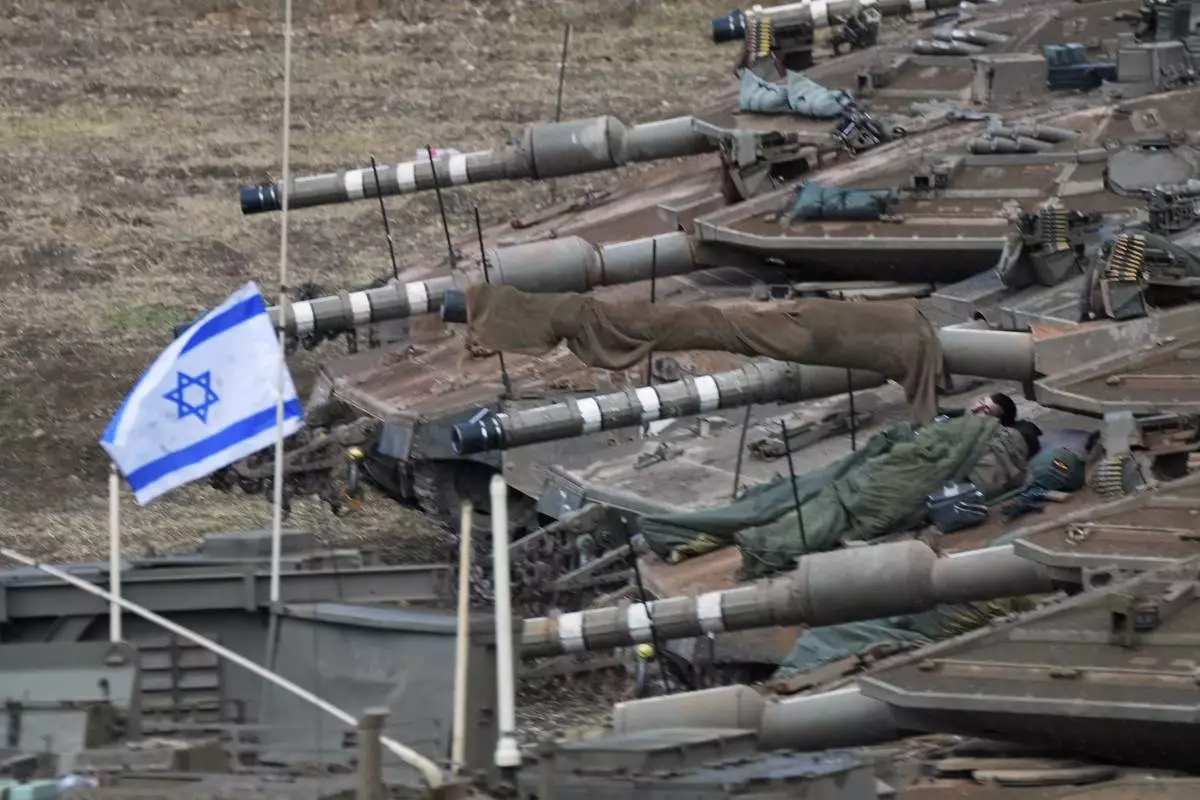
Israeli soldiers sleep on tanks in a staging area in northern Israel near the Israel-Lebanon border, Tuesday, Oct. 1, 2024. (AP Photo/Baz Ratner)
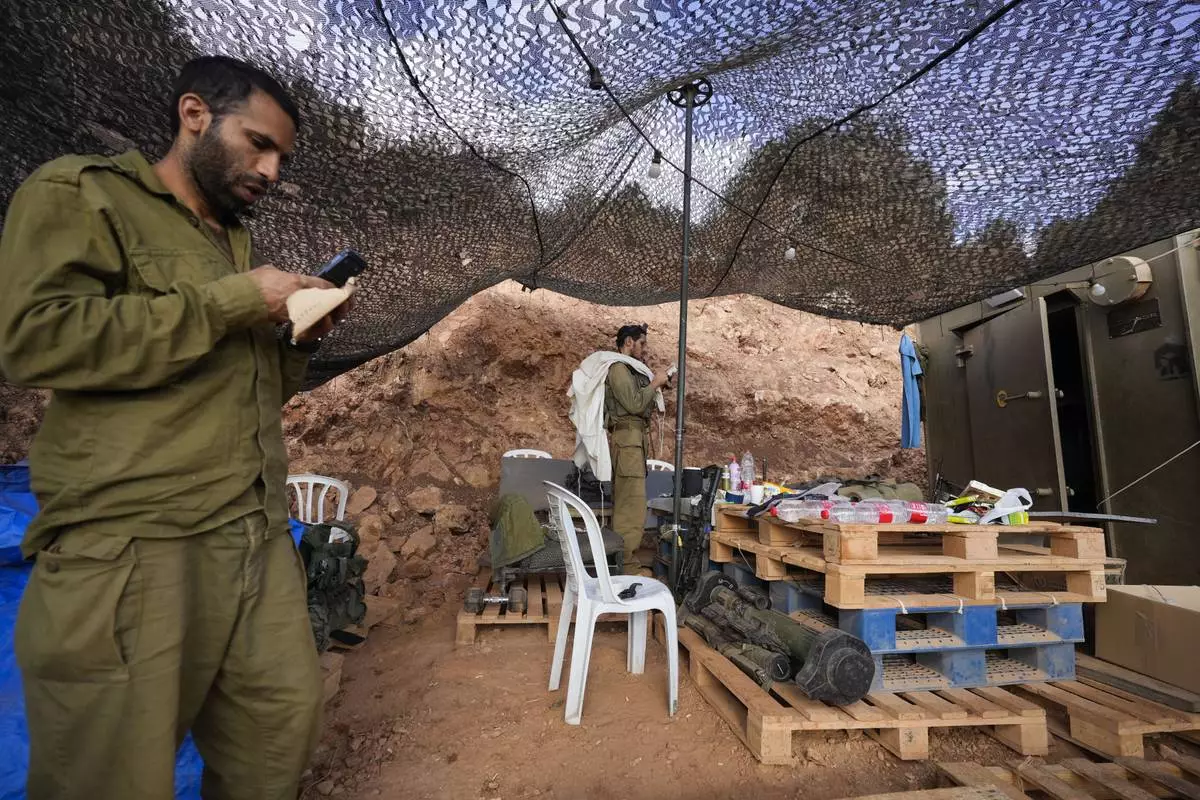
Israeli soldiers pray at a staging area in northern Israel near the Israel-Lebanon border, Tuesday, Oct. 1, 2024. (AP Photo/Baz Ratner)
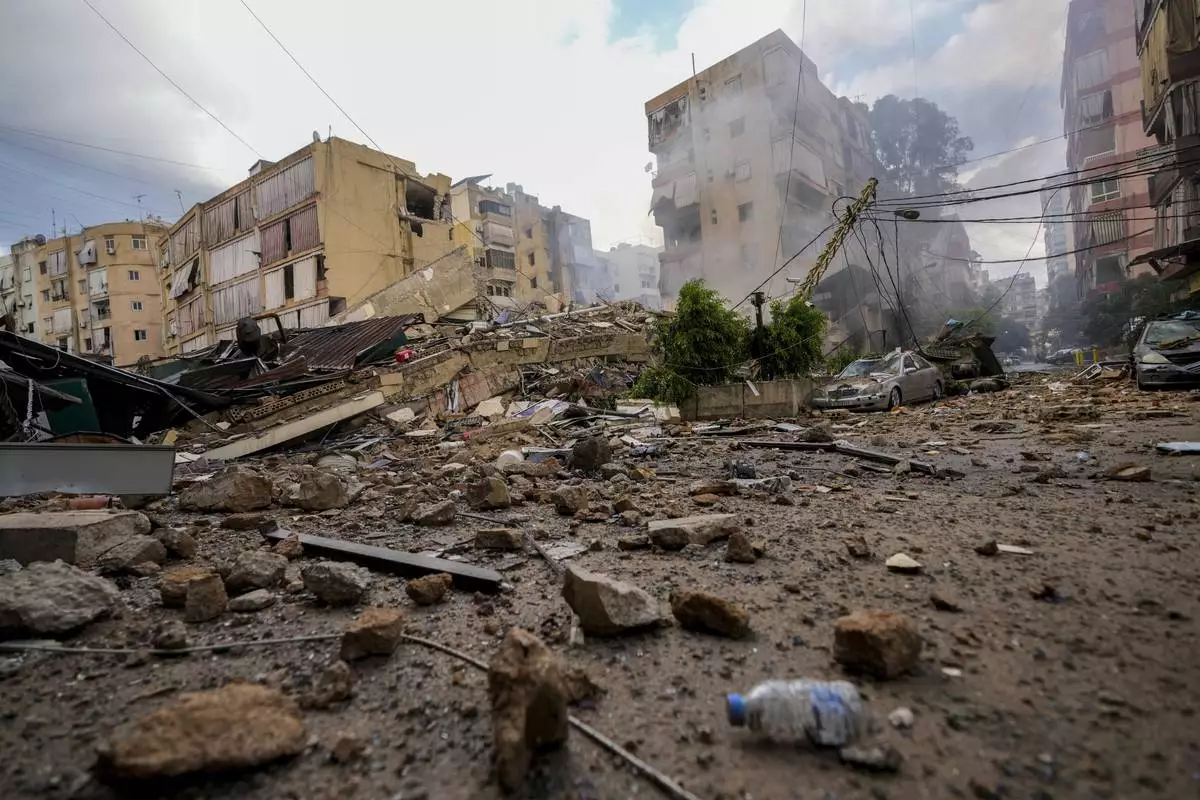
Smoke rises from the site of an Israeli airstrike in Beirut's southern suburb, Lebanon, Tuesday, Oct. 1, 2024. (AP Photo/Hassan Ammar)
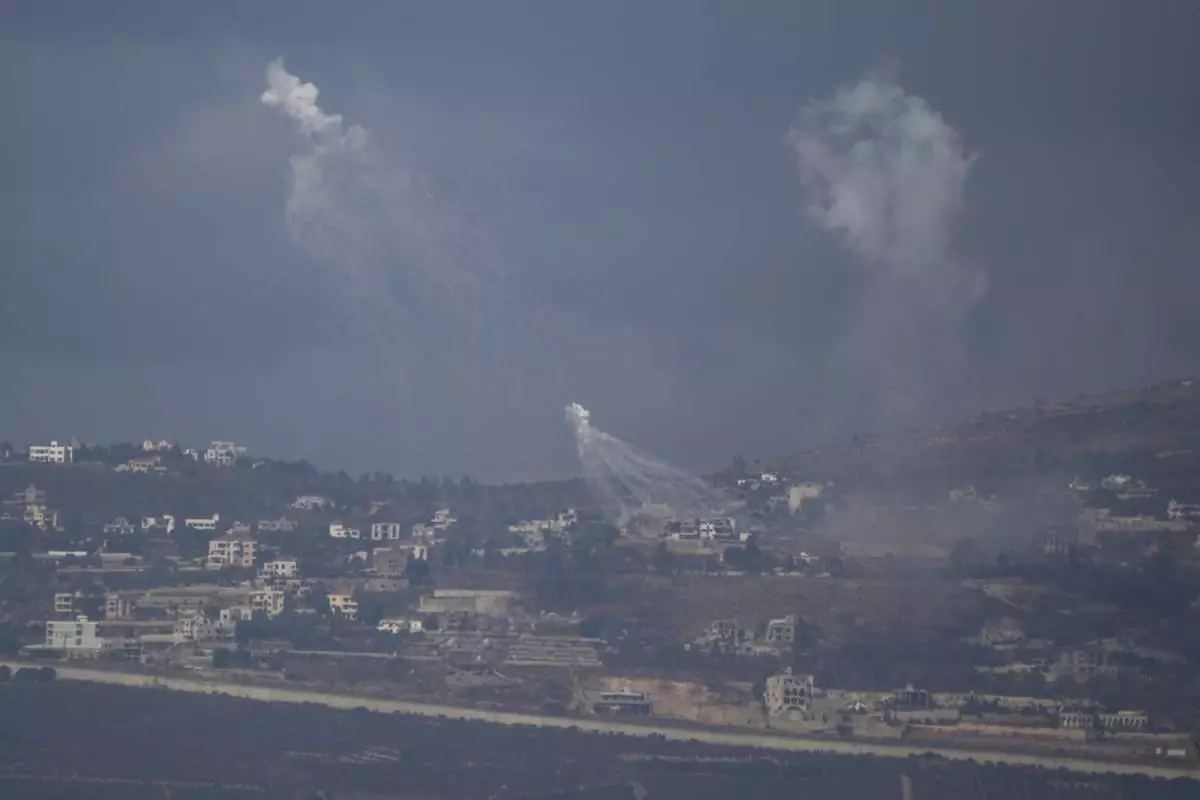
Israeli shelling hits an area in southern Lebanon as seen from northern Israel, Tuesday, Oct. 1, 2024. (AP Photo/Leo Correa)
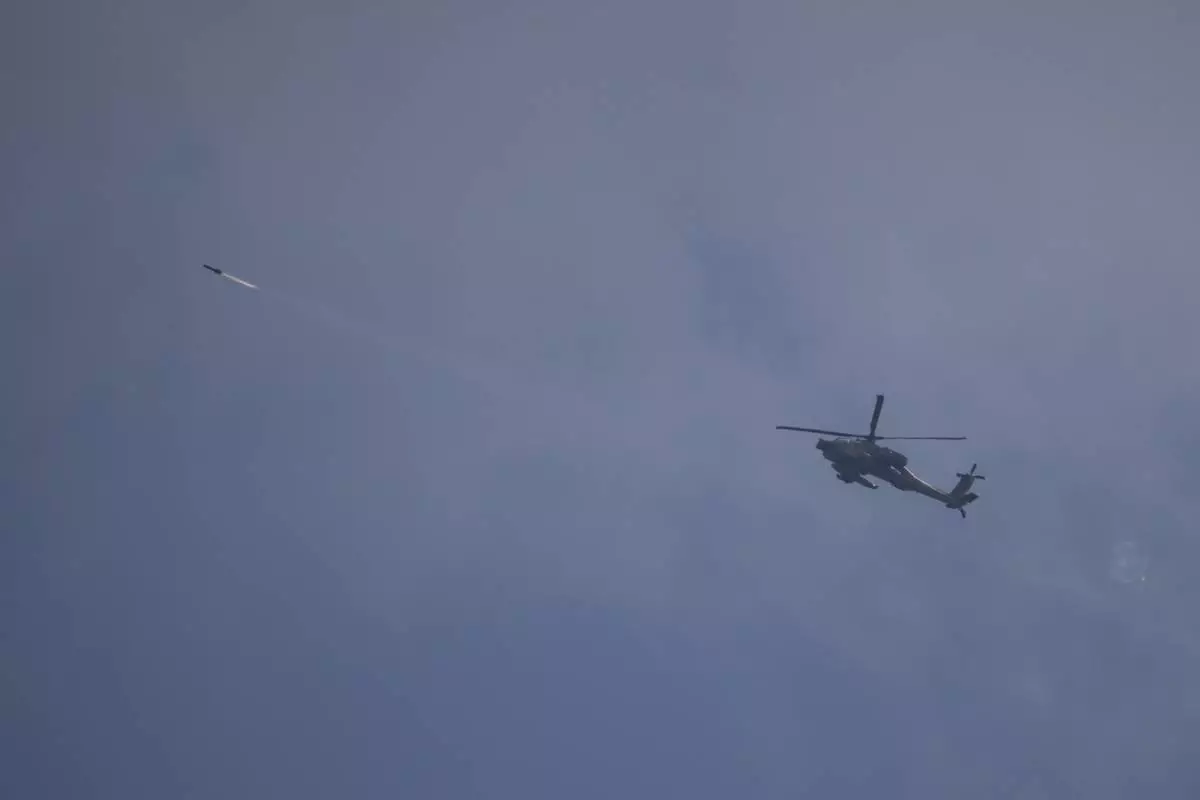
An Israeli Apache helicopter fires a missile towards southern Lebanon as seen from northern Israel, Tuesday, Oct. 1, 2024. (AP Photo/Leo Correa)
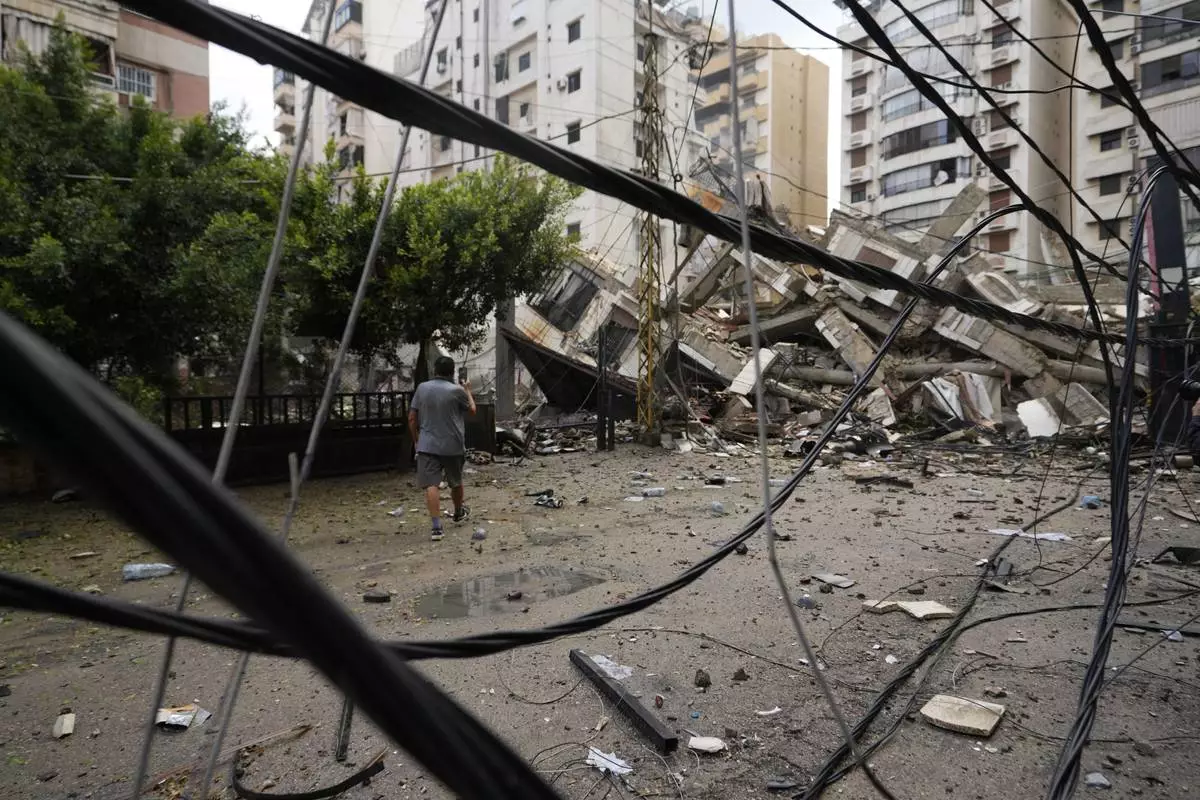
A man checks the damaged buildings at the site of an Israeli airstrike in Beirut's southern suburb, Lebanon, Tuesday, Oct. 1, 2024. (AP Photo/Hassan Ammar)
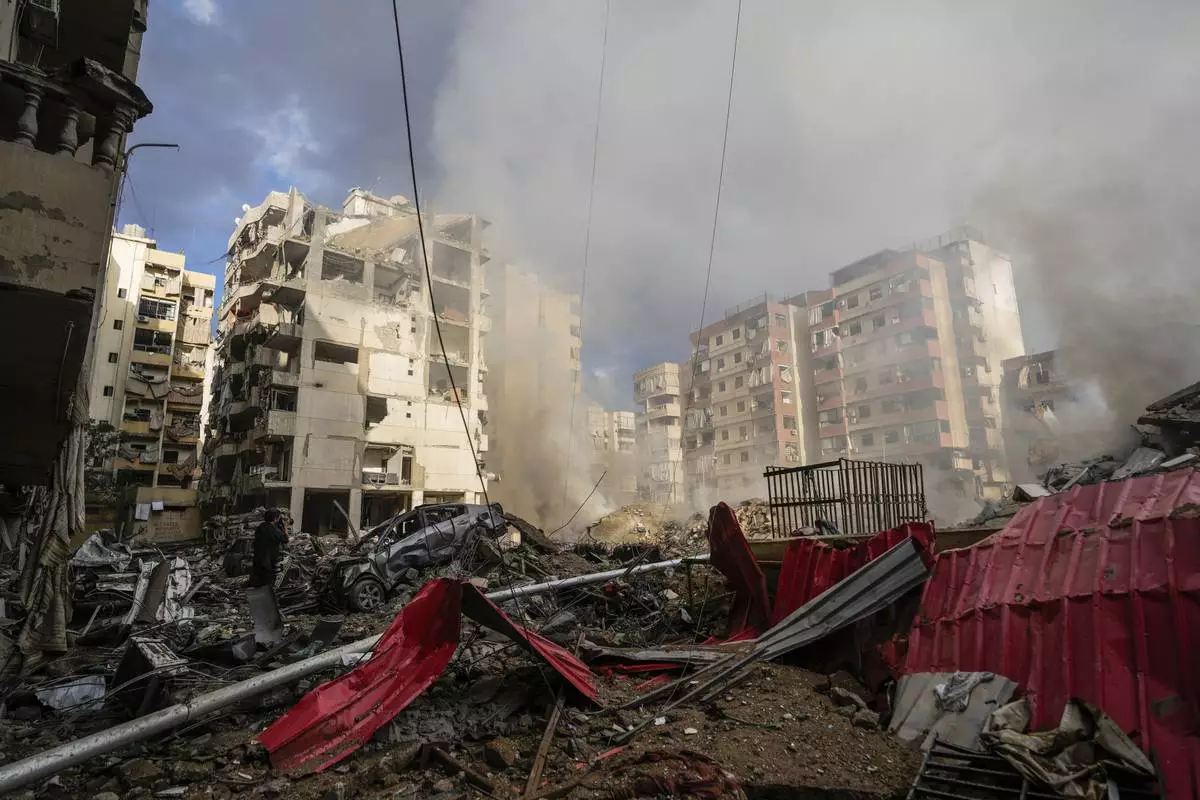
Smoke rises from the site of an Israeli airstrike in Beirut's southern suburb, Lebanon, Tuesday, Oct. 1, 2024. (AP Photo/Hassan Ammar)
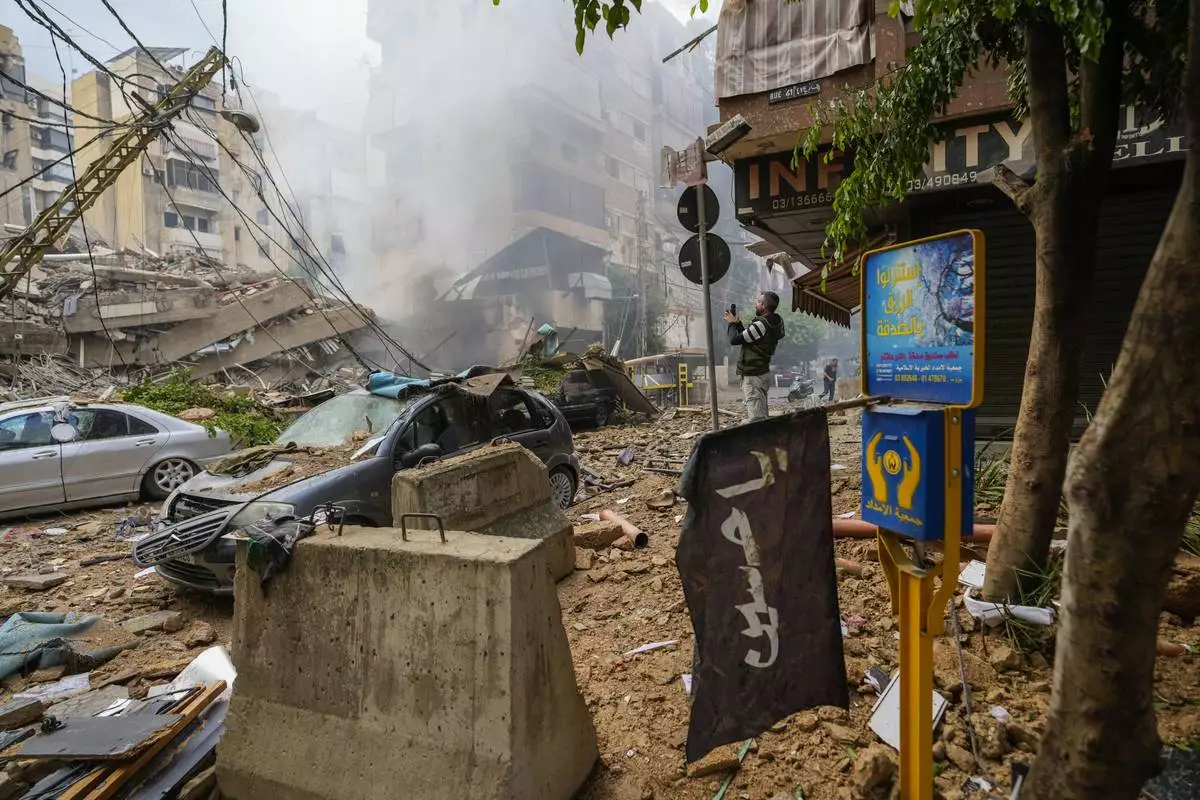
A man documents the damaged buildings at the site of an Israeli airstrike in Beirut's southern suburb, Lebanon, Tuesday, Oct. 1, 2024. (AP Photo/Hassan Ammar)
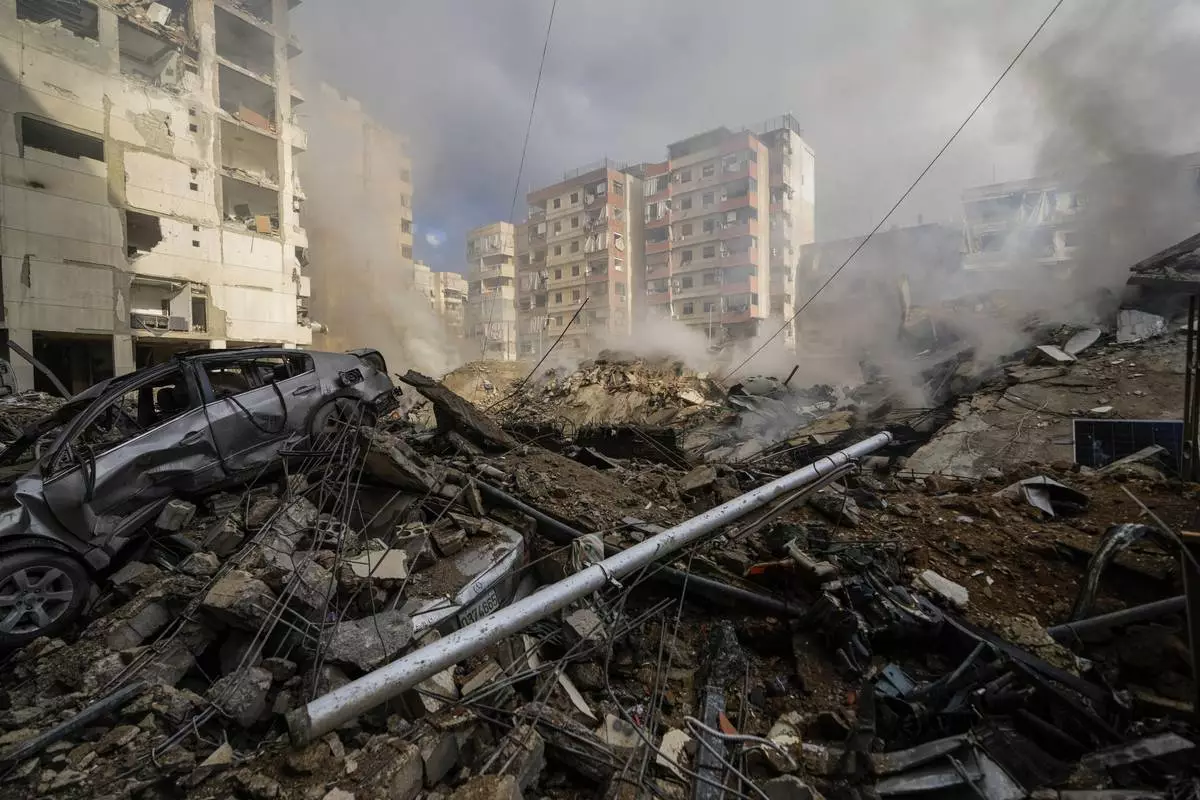
Smoke rises from the site of an Israeli airstrike in Beirut's southern suburb, Lebanon, Tuesday, Oct. 1, 2024. (AP Photo/Hassan Ammar)
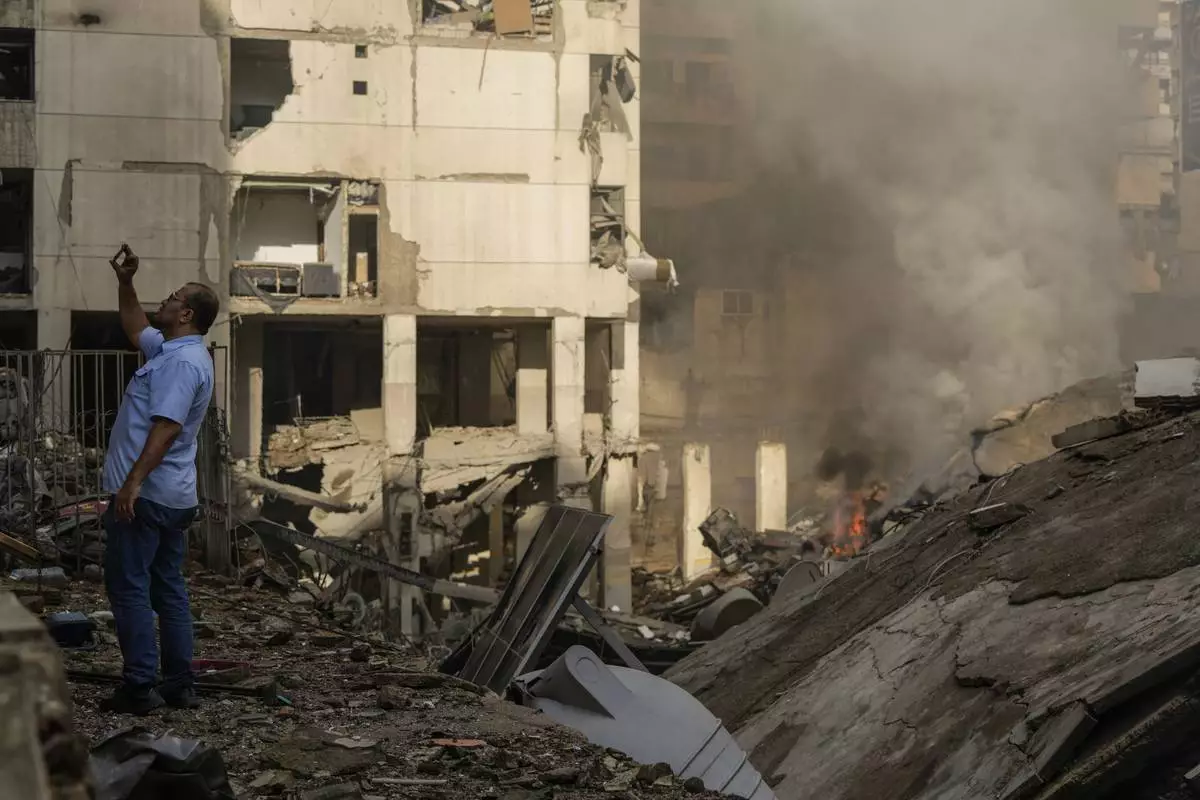
A man documents the damaged buildings at the site of an Israeli airstrike in Beirut's southern suburb, Lebanon, Tuesday, Oct. 1, 2024. (AP Photo/Hassan Ammar)
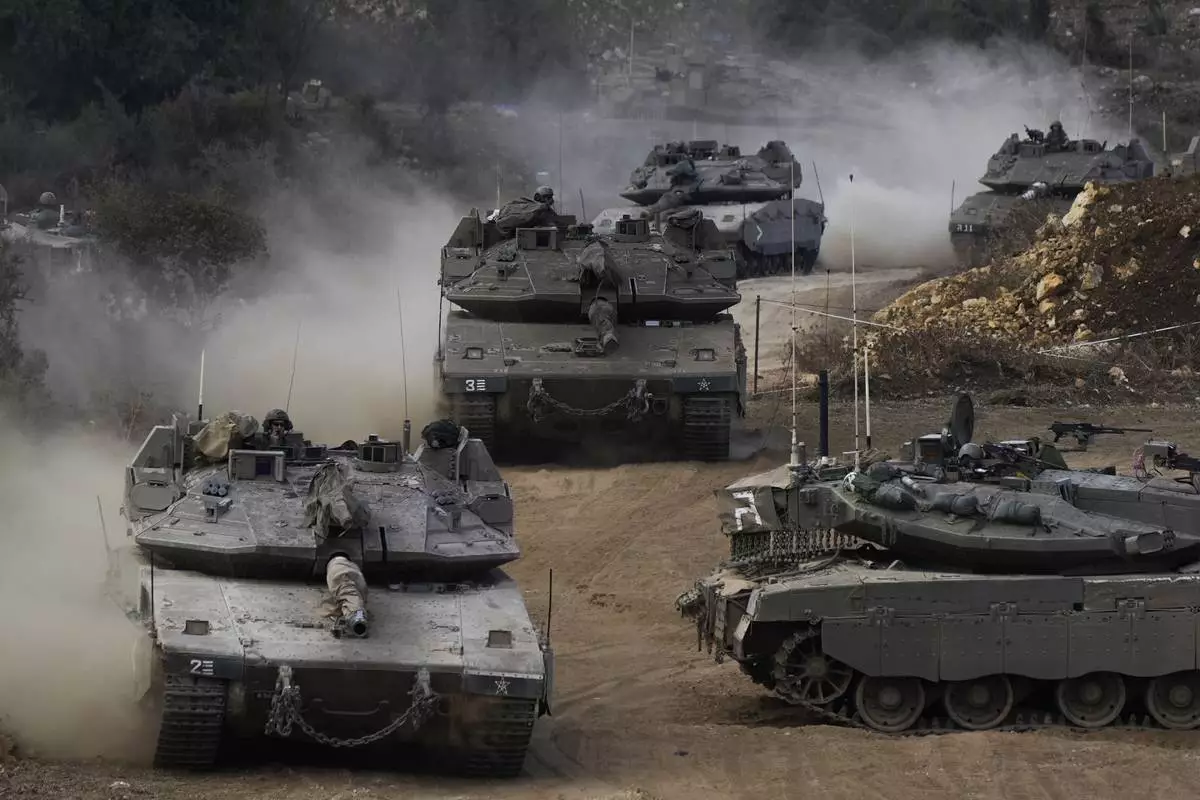
Israeli army tanks manoeuvre in a staging area in northern Israel near the Israel-Lebanon border, Tuesday, Oct. 1, 2024. (AP Photo/Baz Ratner)
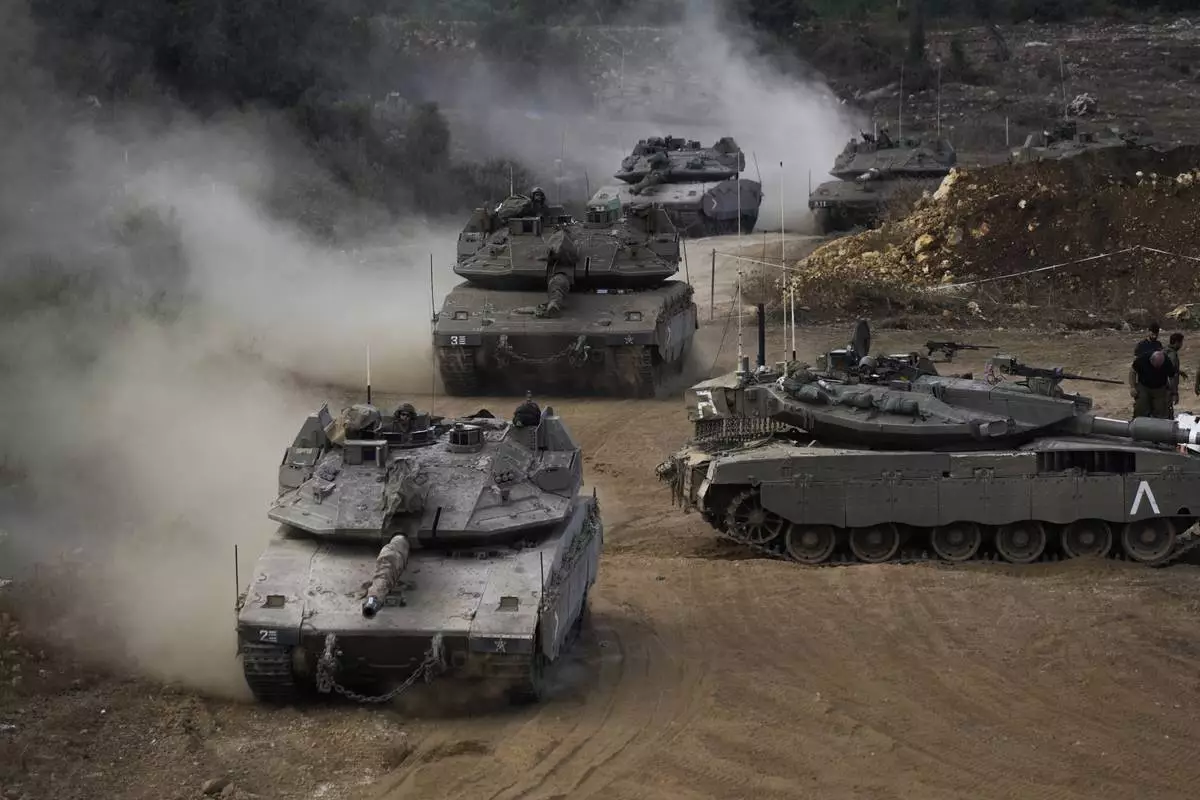
Israeli army tanks manoeuvre in a staging area in northern Israel near the Israel-Lebanon border, Tuesday, Oct. 1, 2024. (AP Photo/Baz Ratner)
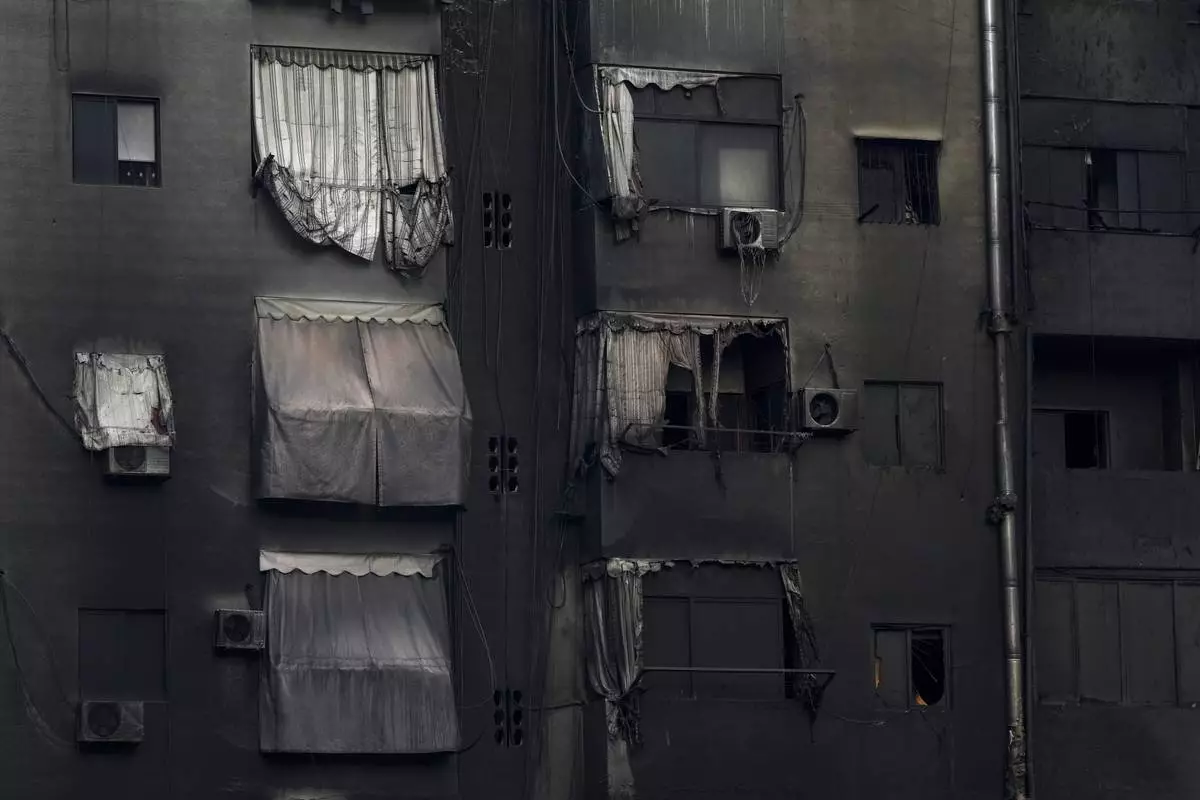
A burnt out building at the site of an Israeli airstrike in Beirut's southern suburb, Lebanon, Tuesday, Oct. 1, 2024. (AP Photo/Hassan Ammar)
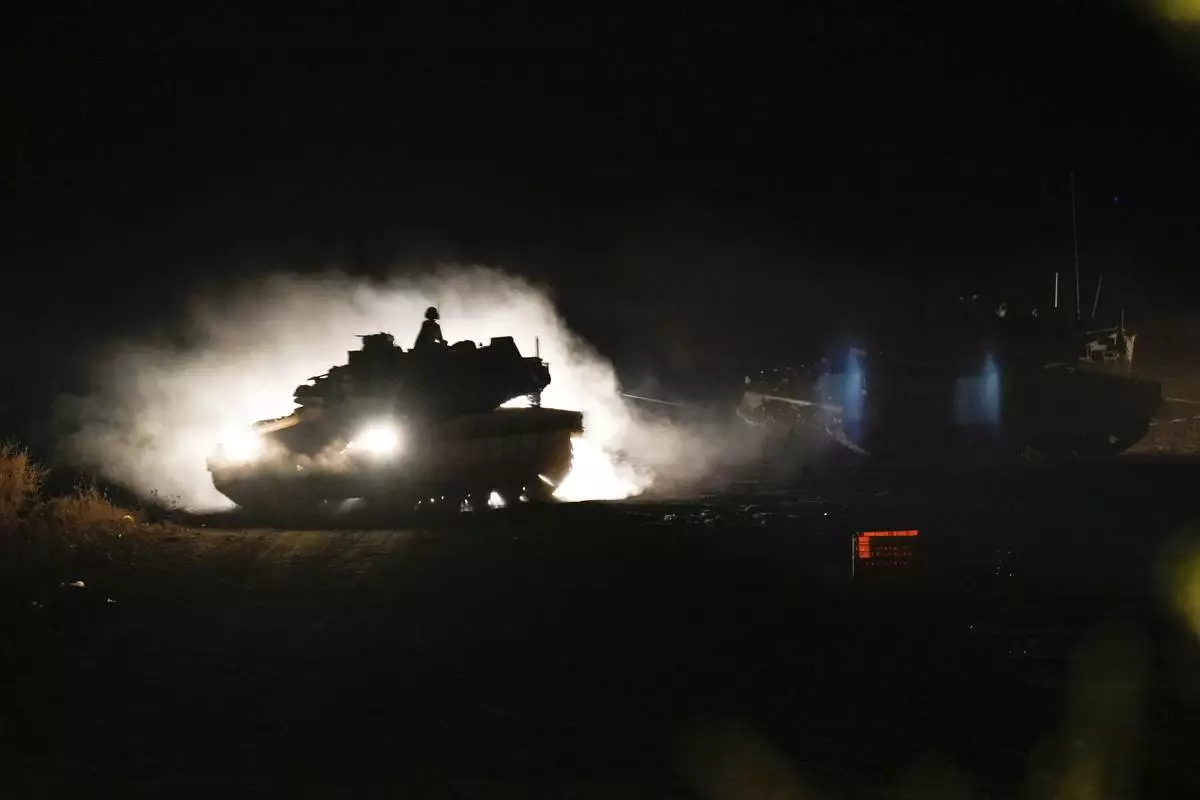
An Israeli tank manoeuvres in northern Israel near the Israel-Lebanon border, Monday, Sept. 30, 2024. (AP Photo/Baz Ratner)
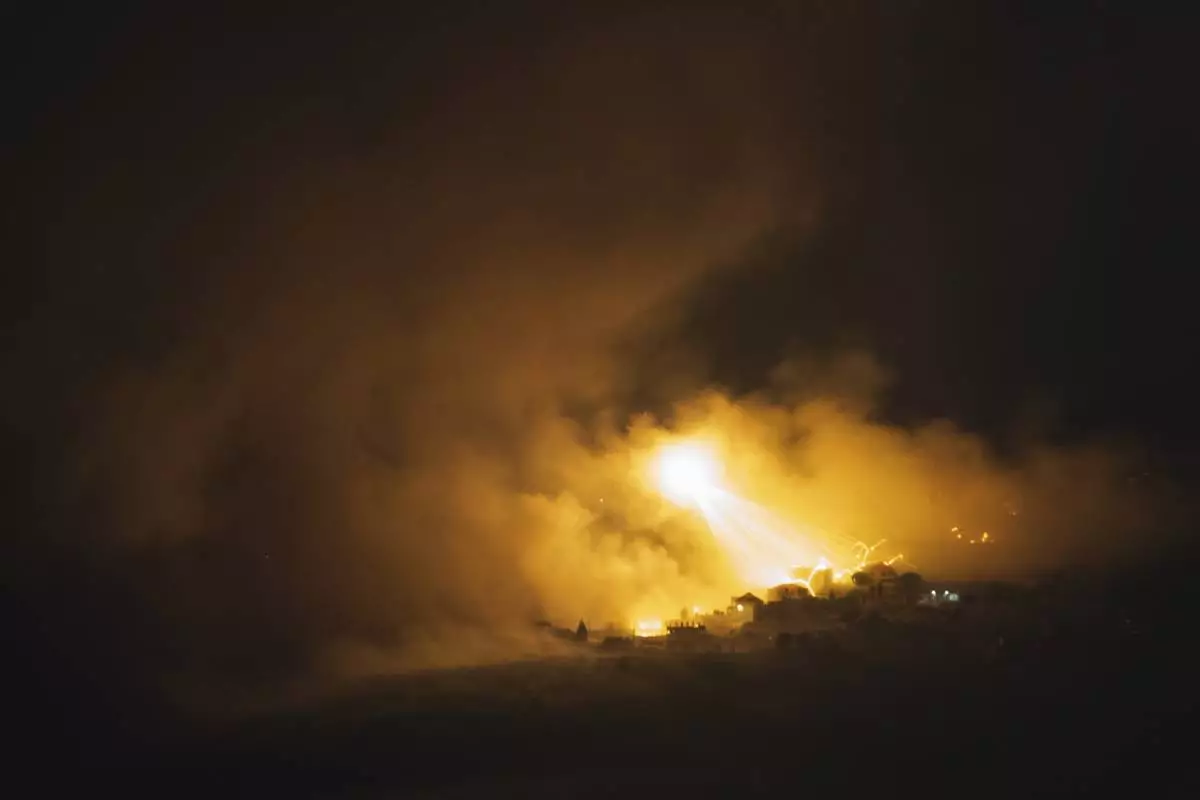
Israeli shelling hits an area in southern Lebanon as seen from northern Israel, early Tuesday, Oct. 1, 2024. (AP Photo/Leo Correa)
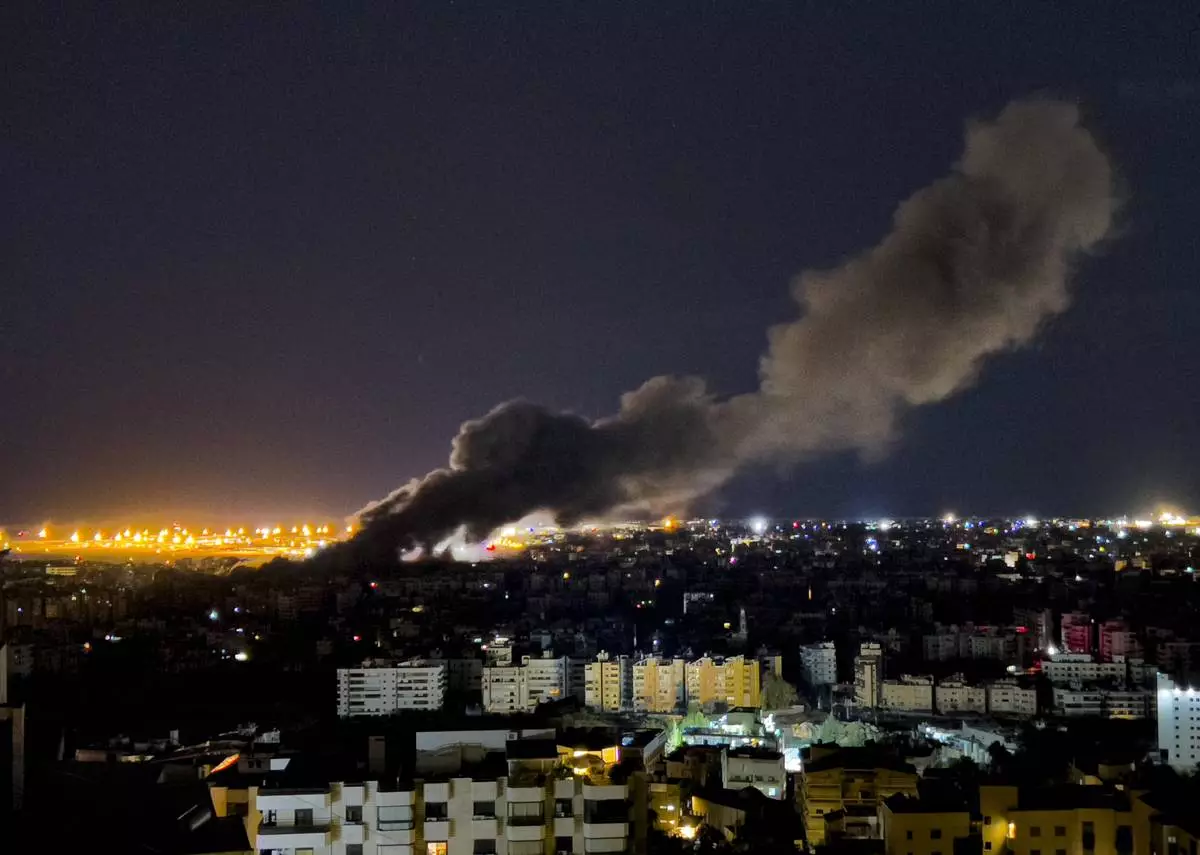
Smoke rises from an Israeli airstrike that hit the southern suburb of Beirut, Lebanon, Tuesday, Oct. 1, 2024. (AP Photo/Hussein Malla)
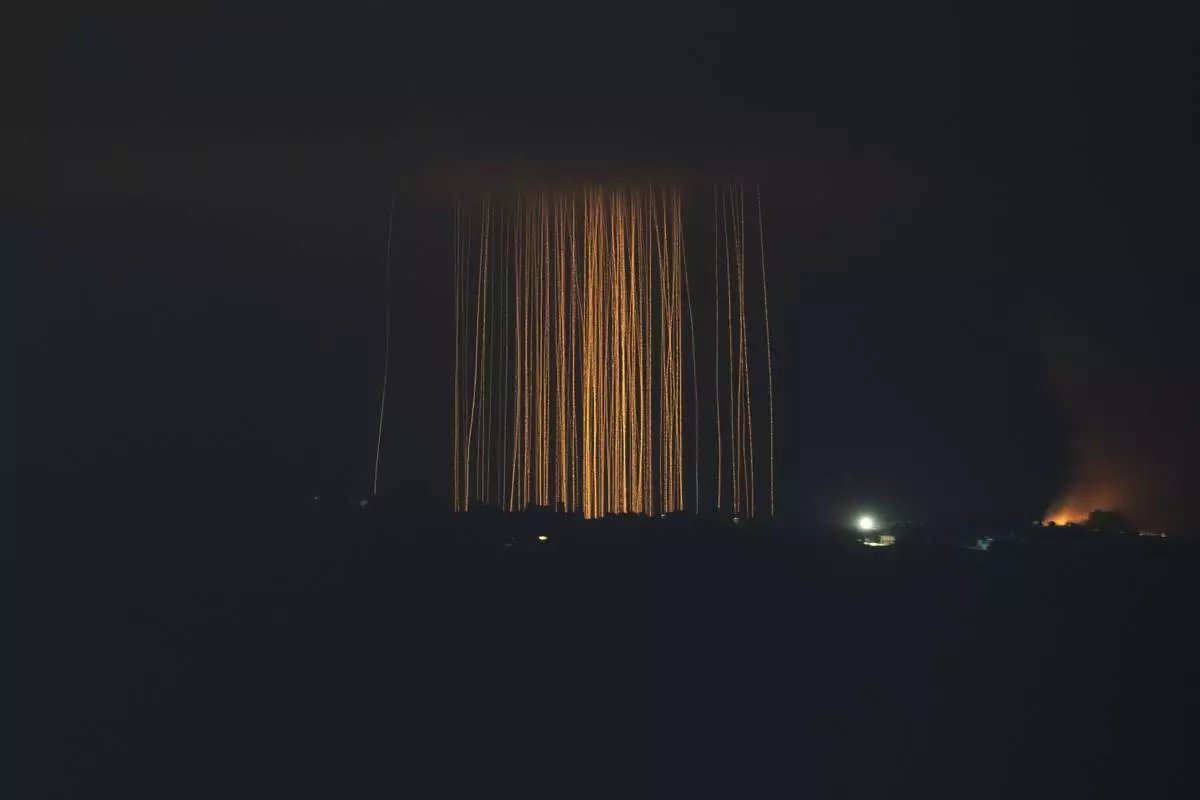
Israeli shelling hit an area in southern Lebanon as seen from northern Israel, Monday, Sept. 30, 2024. (AP Photo/Leo Correa)
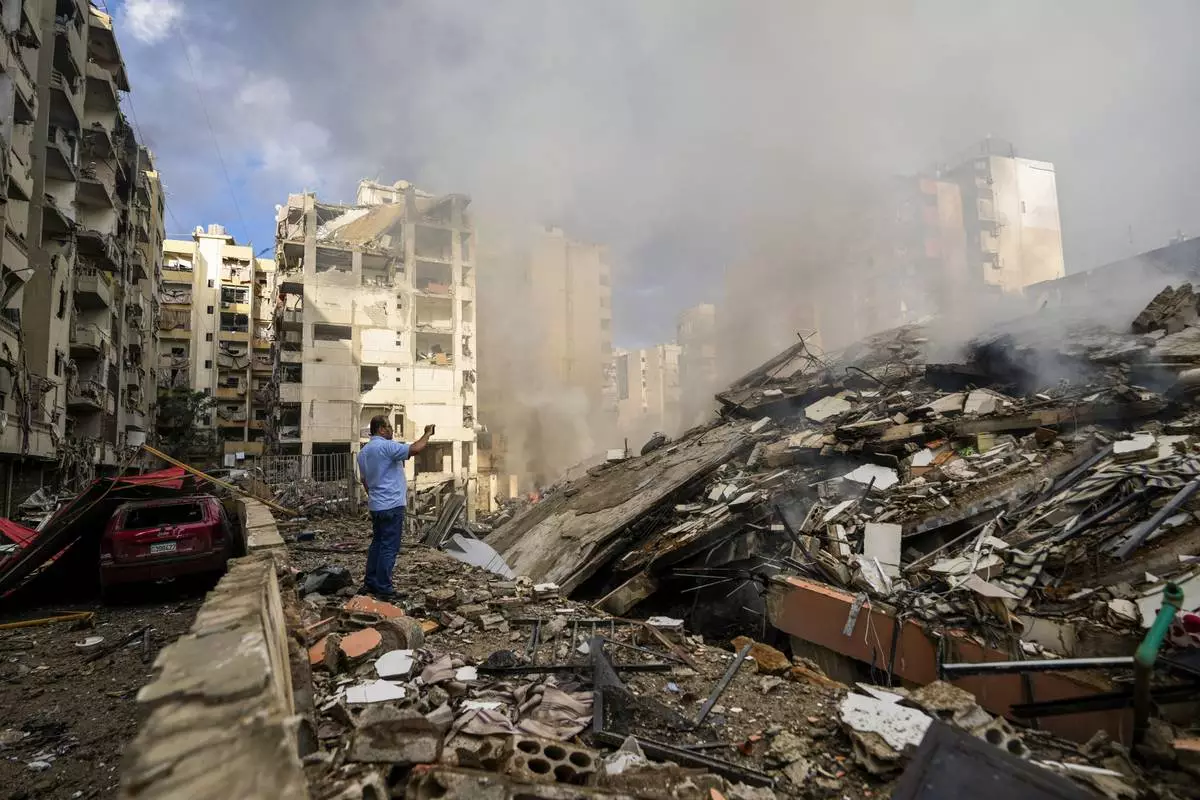
A man documents the damaged buildings at the site of an Israeli airstrike in Beirut's southern suburb, Lebanon, Tuesday, Oct. 1, 2024. (AP Photo/Hassan Ammar)
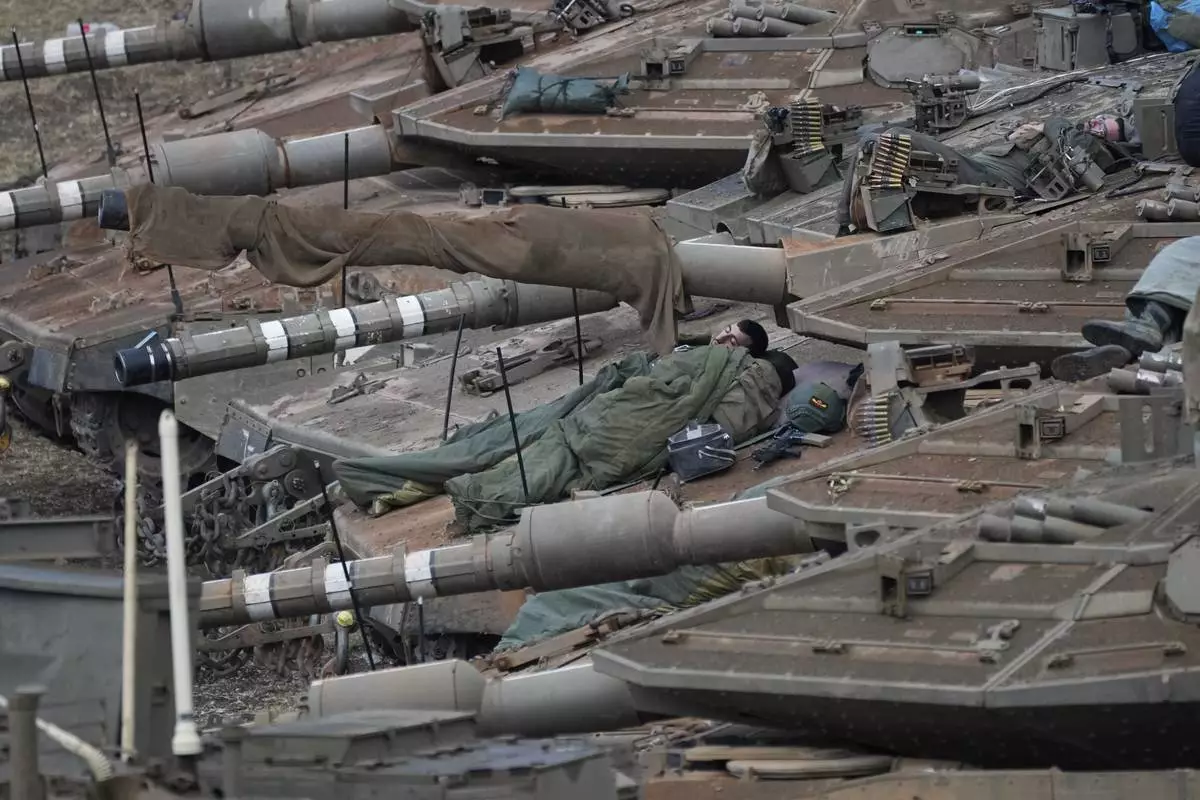
Israeli soldiers sleep on tanks in a staging area in northern Israel near the Israel-Lebanon border, Tuesday, Oct. 1, 2024. (AP Photo/Baz Ratner)



